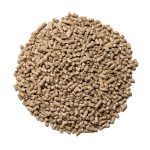Incense, often used for its pleasant aroma and spiritual significance, can pose a significant health risk to cats. The smoke emitted from incense sticks, cones, and other forms can contain harmful chemicals that can irritate the respiratory system, cause respiratory infections, and even lead to more serious health problems.
Ingredients to avoid in cat-safe incense
When choosing incense products for your cat-friendly home, it’s crucial to be aware of certain ingredients that can be harmful to your feline friend. Here are some ingredients to avoid:
- Synthetic fragrances: These can cause respiratory irritation and allergies in cats.
- Dyes: Artificial dyes can be toxic to cats if ingested.
- Essential oils: While many essential oils are safe for cats, some, like tea tree oil, eucalyptus oil, and cinnamon oil, can be toxic.
- Camphor: This ingredient is highly toxic to cats and can cause seizures, coma, and even death.
- Phenols: These chemicals can be irritating to the respiratory system and can cause skin allergies.
- Phthalates: These chemicals are often used as plasticizers in incense sticks and cones. They can be harmful to cats if ingested.
If you’re unsure about the ingredients in a particular incense product, it’s best to err on the side of caution and choose a different option. Always prioritize your cat’s health and well-being when selecting products for your home.
The Dangers of Incense Smoke
- Respiratory Irritation: The smoke from incense can contain particulate matter, volatile organic compounds (VOCs), and other irritants that can cause coughing, sneezing, and difficulty breathing in cats.
- Respiratory Infections: Exposure to incense smoke can increase the risk of respiratory infections, such as bronchitis and pneumonia, in cats.
- Long-Term Health Problems: Chronic exposure to incense smoke can contribute to long-term health problems, including heart disease, cancer, and kidney disease.

Choosing cat-safe incense products
When selecting incense products for your home, it’s essential to prioritize your cat’s safety. Here are some tips to help you choose cat-safe options:
Natural Ingredients
- Avoid synthetic fragrances: Look for incense made with natural ingredients like herbs, spices, and essential oils. Avoid products containing synthetic fragrances or dyes, as these can be harmful to cats.
- Check ingredient lists: Carefully read the ingredient lists to identify any potential allergens or toxins.
Non-Toxic Materials
- Avoid toxic materials: Ensure the incense sticks, cones, or burners are made from non-toxic materials. Avoid those containing harmful chemicals or heavy metals.
- Check certifications: Look for products that are certified as non-toxic or safe for pets.
Low Smoke Emission
- Minimize exposure: Choose incense products that produce minimal smoke. Excessive smoke can irritate your cat’s respiratory system.
- Consider alternatives: If you’re concerned about smoke, explore alternatives like essential oil diffusers or scented candles made with natural ingredients.
Check for Warnings
- Read labels carefully: Always read the labels on incense products for any warnings or cautionary statements.
- Avoid products with warnings: If a product warns against use around pets, it’s best to avoid it.
Consult with a Veterinarian
- Seek expert advice: If you have concerns about using incense around your cat, consult with your veterinarian. They can provide specific recommendations based on your cat’s health and sensitivities.
Even with precautions, some cats may be sensitive to incense smoke. If you notice any adverse reactions in your cat, discontinue use and consult with your veterinarian.
Choosing Safe Alternatives
If you enjoy the aroma of incense, there are several safe alternatives that you can consider:
- Essential Oil Diffusers: Essential oil diffusers use ultrasonic technology to disperse essential oils into the air, providing a pleasant fragrance without the risks associated with incense smoke. Many essential oils, such as lavender, chamomile, and eucalyptus, are safe for cats and can help create a calming atmosphere.
- Scented Candles: Scented candles made with natural waxes and essential oils can provide a pleasant aroma without the harmful chemicals found in many incense products. However, it is important to choose candles that are free from synthetic fragrances and dyes.
- Air Freshener Sprays: Air freshener sprays made with natural ingredients can be a safe and effective way to freshen the air in your home. Look for products that are free from artificial fragrances and harmful chemicals.
Safe usage of incense around cats
While incense can be a pleasant addition to your home, it’s crucial to use it safely to protect your cat’s health. Here are some guidelines:
Choose Safe Incense
- Natural ingredients: Opt for incense made with natural ingredients like herbs, spices, and essential oils. Avoid those containing synthetic fragrances or dyes.
- Non-toxic materials: Ensure the incense sticks, cones, or burners are made from non-toxic materials.
- Check labels: Always read the labels to identify any potential hazards for cats.
Ventilate the Area
- Good airflow: Ensure the area where you burn incense has adequate ventilation to disperse the smoke and prevent it from accumulating.
- Open windows or doors: Consider opening windows or doors to allow fresh air to circulate.
Keep Out of Reach
- Prevent accidental ingestion: Store incense and its accessories in a place where your cat cannot reach or access them.
- Secure burners: If using a burner, make sure it’s stable and won’t tip over, potentially causing a fire or burns.
Monitor Your Cat
- Watch for signs of discomfort: Keep an eye on your cat’s behavior and watch for any signs of discomfort, such as coughing, sneezing, or excessive grooming.
- Consult a veterinarian: If you notice any concerning symptoms, consult with your veterinarian.
Consider Alternatives
- Safer options: Explore safer alternatives like essential oil diffusers, scented candles (made with natural ingredients), or air fresheners that are cat-safe.
- Natural air purifiers: Consider using natural air purifiers like activated charcoal to improve air quality without the risks associated with incense.
Even with precautions, some cats may be sensitive to incense smoke. If you notice any adverse reactions, it’s best to avoid using incense altogether.

Creating a Safe Environment for Your Cat
In addition to choosing safe alternatives to incense, there are several steps you can take to create a safe environment for your cat:
- Provide Adequate Ventilation: Ensure that your home has good ventilation to help reduce the buildup of indoor air pollutants, including incense smoke.
- Avoid Secondhand Smoke: If you smoke, do so outside or in a designated smoking area away from your cat. Secondhand smoke can be harmful to cats and can increase their risk of respiratory problems.
- Keep Incense Out of Reach: If you do use incense, keep it out of your cat’s reach to prevent accidental ingestion or exposure to harmful smoke.
- Monitor Your Cat’s Health: Keep an eye on your cat’s health and behavior. If you notice any signs of respiratory distress, such as coughing, sneezing, or difficulty breathing, take your cat to the veterinarian for examination.
Alternatives to incense for cat-friendly environments
If you’re looking for a way to add fragrance to your home without harming your feline friend, consider these alternatives to traditional incense:
Houseplants
- How they work: Many houseplants have natural fragrances that can freshen the air.
- Benefits: They can also add beauty and life to your home.
- Tips: Choose plants that are safe for cats, such as spider plants, Boston ferns, and snake plants.
Natural Air Purifiers
- How they work: These products use natural materials, like activated charcoal, to absorb odors and purify the air.
- Benefits: They are often chemical-free and can be a great option for those with allergies or sensitivities.
- Tips: Place them in areas where odors are most noticeable, such as the kitchen or bathroom.
When choosing any alternative to incense, it’s important to consider your cat’s sensitivities. If you notice any signs of discomfort or respiratory issues, discontinue use and consult with your veterinarian.

While incense can be a pleasant addition to your home, it is important to be aware of the potential risks to your cat’s health. By choosing safe alternatives and taking steps to create a healthy environment, you can enjoy the benefits of a fragrant home without compromising your cat’s well-being.










